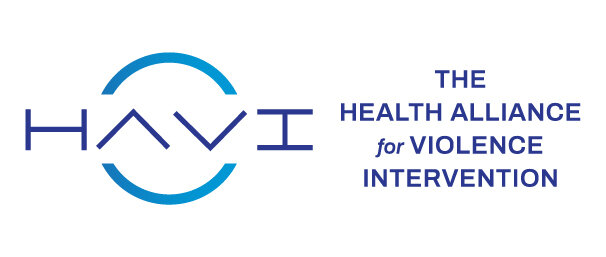The HAVI's research page is a resource aimed at illuminating the vital role Hospital-Based Violence Intervention Programs (HVIPs) play in not only reducing re-injury rates but also in enhancing access to care and bolstering support for communities. The featured studies analyze the outcomes of these intervention programs from various research institutions and scholars. We encourage you to read, share, and discuss this pivotal research. Together, we can extend the reach of HVIPs and ensure that every individual affected by violence receives the care, support, and opportunity necessary for healing and growth.
2026
Effects of a Hospital-Based Violence Intervention Program on Community Violence in Boston, Massachusetts
January 2026; Jonathan Jay, Elizabeth Pino, Megan Georges, Alexa Courtepatte, Jennifer Harris, Emma Gause, Ruth Abaya, Emily F. Rothman, and Jason Goldstick, Annals of Internal Medicine
Hospital-based violence intervention programs (HVIPs) are widespread, but their effectiveness for violence prevention is unclear. HVIPs can improve long-term violence outcomes, though these effects seem to require intensive participant engagement. Read More
2025
Violent Firearm Injury and Homelessness: Examining the Experiences of Black Men Participating in Hospital-Based Violence Intervention Programs
May 2025; William Wical, Lea Marineau, Nazsa Baker, Bethany Strong, Nakita Lovelady, Joseph B. Richardson, Jr., American Journal of Men’s Health
Both experiencing homelessness and having survived a violent firearm injury are well-known risk factors for being a victim of violence. Read More
Increasing a hospital-based violence intervention program’s referrals for children and families in a pediatric emergency department
May 2025; Narmeen I. Khan, Sri S. Chinta, Brooke M. Cheaton, Mark Nimmer, Michael N. Levas, Injury Epidemiology
Our pediatric tertiary care hospital sees a high rate of firearm injuries. Hospital-based violence intervention programs (HVIPs) reduce violent injury recidivism rates in victims. Read More
The Experiences of Black Men Who Survived a Gunshot Wound and Were Treated With a Colostomy
April 2025; William Wical, Bethany Strong, Joseph B. Richardson, American Journal of Men’s Health
In the United States, rates of fatal and nonfatal firearm injuries differ substantially by race and sex, with Black men being more likely than any other group to be shot. Read More
Health Care Practitioner Bias and Access to Inpatient Rehabilitation Services Among Survivors of Violence
April 2025; Megan R. Georges, Alexa Courtepatte, Alice Hibara, Jennifer Harris, Tanesha Beckford, David Wiley, Emma Weinberger, Rebecca Rudel, Elizabeth Dugan, Jonathan Jay, Elizabeth C. Pino, JAMA Open Network
Posthospital inpatient rehabilitation is essential for many patients with traumatic injuries. However, rehabilitation centers lack transparency and oversight in their admission practices. Read More
Evaluating the structural, financial, and legal aspects of hospital-based violence intervention programs implementation on psychosocial outcomes and violence reduction: A systematic review
March 2025; Philip Lee, Nikita Nunes Espat, Ruth Zagales, Brian Chin, Ian Bundschu, Brevin O’Connor, Logan Rogers, Adel Elkbuli, ScienceDirect
This systematic review aims to assess different effective hospital-based violence intervention programs (HVIP) design strategies and their effects on reducing the incidence of violence-related injuries. Read More
Crossing the chasm: engaging Black men survivors of gun violence in mental health services
February 2025; Erin Major, Celina Thomas, Charlotte Healy, Amy Vander Stoep, Joseph B. Richardson, Thomas M. Scalea, Melike N. Harfouche, Trauma Surgery & Acute Care Open
Despite being high risk for post-traumatic stress disorder, Black men survivors of gun violence, and particularly young men aged 18–24, seldom participate in mental health services after injury. Read More
Development of a Brief Client Satisfaction and Quality Improvement Tool for Hospital-Based Violence Intervention Programs: Opportunities for Enhancing Client Perspectives
January 2025; Rachel K. Myers, Hillary M. Kapa, Stephanie M. Garcia, Laura Vega, Joel A. Fein, American Journal of Men’s Health
Hospital-based violence intervention programs (HVIPs) are evidence-informed strategies to promote recovery among victims of violence. Read More
Assessing the Gun Violence Archive and Public Police Data as Comprehensive Sources for Gun Violence
January 2025; Michael G. Anchan, Jennifer Harris, Sophia Natale-Short, Megan R. Georges, Elizabeth C. Pino, JAMA Open Network
Gun violence has been recognized as a public health crisis in the United States. Nevertheless, no single, comprehensive database exists to track fatal and nonfatal firearm injuries. Read More
2024
Financial toxicity and firearm injury: exploring financial needs of participants in a hospital-based violence intervention program
December 2024; Ana M Reyes, Carlene McKenzie, Meghan Scott, Christopher R Haggerty, Julie Y Valenzuela, Trauma Surgery & Acute Care Open
Financial toxicity refers to financial hardship experienced because of illness or injury. Poverty is a known driver of community violence, but financial toxicity has not been studied in firearm violence survivors. Read More

